Sr Kwyrina Karas
In May 1936, Sr Kwyrina entered as an Ursuline Postulant in Lwow, Poland. Much to her family’s grief, she was sent to finish her Novitiate in England in 1938. When Germany invaded Poland in 1939, she lost contact with her family and never knew of their fate. She did not know that they had been transported to a labour camp in Siberia. Her brother, Dr Adam Karas, writes about his experiences and the moment he was finally reunited with his sister.
Below is an extract taken from an article in the Catholic Herald.
“We were awakened at 3am by Russian soldiers. They said there was going to be a tremendous amount of fighting going on in the region. Once we were assembled in the railway yard it was evident we were not being evacuated for our own protection, but as prisoners of war for labour camps in Siberia. They packed us onto cattle cars, about 60 people to a car with no toilets, nothing. We travelled for almost six weeks before we finally arrived at our destination.
Everyone over 11 was put to work building railway tracks through Siberia. In return, people were given food. The amount of food was in proportion to the work you completed. We would secretly pray to Jesus; we would gather together and the whole family would pray. We were often caught and badly beaten as this was not allowed. The combination of cold weather and hunger led to sickness and death. Survivors envied the dead. Our first tragedy as a family was the death of our sister Angela, who died giving birth to a girl. Eighteen months later the girl died of starvation. After her burial, her grave was pillaged and the sheet she was wrapped in was gone. Despite the death of her daughter and granddaughter, my mother would never let us fall into despair, she would continue rallying us. She kept telling us that whatever it is, trust in God and eventually we’ll come out of it alright. After two years we were sent to Khirghistan in the south of Russia. A milder climate but greater starvation.
In 1943, bowing to the pressure of their British and American allies, Russia began to release Polish prisoners. Many Polish men quickly joined the armed forces, including my two brothers. After we were released we were shipped to Iran which was supposed to be the beginning of a new life. Instead, it was the end for many. We were given a good meal, which probably killed more people than anything else. We were totally on a fasting stomach and they gave us fatty foods. That’s what killed my mother three days later.
Meanwhile, the governments of Mexico, Argentina, Africa and India were willing to take a quota of Polish refugees. We wanted to go to Mexico or Argentina as these were close to the United States, but we were sent to India where we spent five years in a camp near Kolhapur.”
After WWII, four of the children moved to England with their older brothers who had joined the armed forces in 1943 and Sr Kwyrina. As the years passed, the siblings went their separate ways. Three lived in England, two in the United States, one in Canada and one in Australia. Although they had seen each other here and there, they had not all been together at the same time in 48 years.
In 1984 the seven surviving members of the Karas family came from four different countries to reunite in London. They sang together, they stayed together, they ate together, they toured London together- but most important, they were together for the first time in 48 years. All seven reminisce about how their mother’s spirit continues to strengthen their lives. Adam Karas said “I have trust in her spirit as a mother. She has a great influence in my life and I constantly call on her for help. Mother’s Day is like a feast day for us, because our mother lived the life of a saint.”
The following is an extract of a speech given by Sr Kwyrina’s sister Stefany at her Golden Jubilee celebrations in 1989
“Sr Kwyrina, as our eldest sister, after the death of our brother Walenty, became our spiritual parent, we did not feel so alone, especially as the Ursuline Community became our extended family. She gave us consolation, inspiration, advise and above all unstinted love and care in times of trials. ‘Hotline to God’ as we fondly call her. I was recently the recipient of her care, not to mention the poor people in Poland. I have seen one room in the convent full of articles in it and was told that this room was called the ‘Polish Embassy’ by the other sisters. I should also imagine that if she was to put all the rosaries together that she makes for the missions, she could probably reach heaven.”


